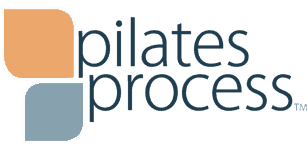FREQUENTLY ASKED QUESTIONS
Pilates Teacher Training FAQs
How does the Pilates Process™ approach differ from traditional Pilates methods?
There are two key defining elements to our Pilates teacher training: adaptability to evolving research and an emphasis on ‘how’ to teach rather than just ‘what’ to teach. Core stability research can be incorporated to some degree in all training, even the most basic mat courses. It affects how we cue, program and adapt. We teach Pilates instructors the reasons behind the method so that they can make educated teaching decisions and logical choices rather than simply repeating information. There are numerous ways to communicate information and we want our instructors to observe and adapt to how the clients learn. Assisted practice on non-Pilates students is a key element of our training.
How much Pilates experience must I have to sign up for the Pilates teacher training courses?
There is not a set amount that is required. Our recommendation is that you’ve had enough Pilates experience to know that its of significant interest to you. It’s also helpful to have done enough that there is some familiarity to the exercises, though it’s not required. We’ve successfully taught students who’ve just started Pilates classes and those who’ve been devotees for decades.
I have some injuries and am worried I can’t do all of the exercises. Can I still become a certified Pilates teacher?
Absolutely. Most teachers have exercises that they had to work at long after certification to be able to do well. Some teachers have certain exercises that are not suitable to their structure. In those cases teachers learn to use other tools, like cuing, and showing static positions well that can relay the information successfully. Sometimes, the exercises that teachers struggle to do, are the ones they learn to teach extremely well.
What is the examination process?
Our exams have both a practical and written component. The examiner watches (and occasionally asks questions) as the student teaches. We like the exam to be a learning experience so we use the opportunity to point out or discuss elements that are valuable education moments. Examinees are awarded a pass, a conditional pass, or a fail. A conditional pass requires specified elements to be reassessed. A minimum of 75% is required on both portions of the exam to receive a pass.
Where is Pilates Process certification recognized?
Pilates Process is a small organization and the name will have minimal recognition beyond Toronto, Vancouver and other pockets in Canada. In our experience, teachers have not found this a barrier to work. Good studios want well trained teachers with excellent client retention, and Pilates Process teachers are well prepared to be successful. Aside from a few specific studios, most studios hire teachers with a variety of backgrounds.
